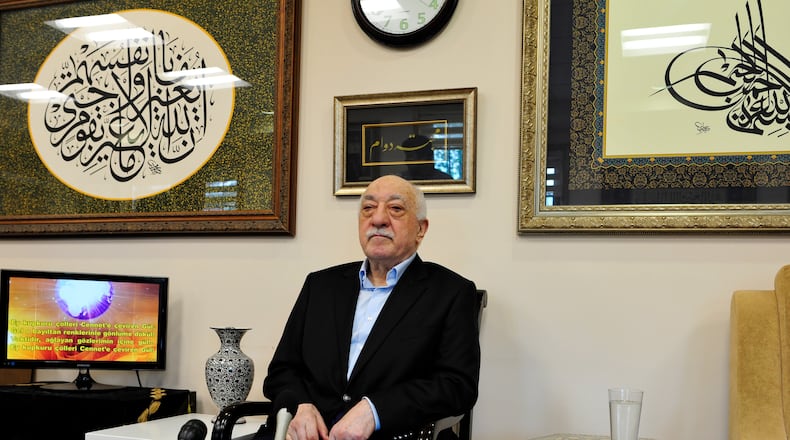Four years ago, the AJC reported on reclusive Turkish cleric and political figure Fethullah Gulen and the Gulen movement. The story examined the Gulen movement's connection to public charter schools, including three operating at the time in Fulton County.
Now, Gulen is back in the news. Turkish President Recep Tayyip Erdogan accused the exiled cleric of directing a recent coup attempt from his home in the United States.
As the AJC reported today:
At the center of the controversy stood Fethullah Gulen, who lives in exile in Pennsylvania and promotes a philosophy that blends a mystical form of Islam with staunch advocacy of democracy, education, science and interfaith dialogue. Erdogan accused Gulen of directing the coup attempt and in a televised speech Saturday, he requested that Washington hand over Gulen.
Gulen quickly condemned the attempted military takeover, which left dozens dead. He is understood to maintain significant support among some members of the military and mid-level bureaucrats. His movement called Hizmet includes think tanks, schools and various media enterprises.
A former ally of Erdogan, whose increasingly authoritarian rule he now criticizes, Gulen told reporters at his Pennsylvania compound he knows only a "minute fraction" of his legions of sympathizers in Turkey, so he cannot speak to their "potential involvement" in the attempted coup.
The AJC reported in 2012 on the Gulen link to the Fulton County Science Academy, Fulton Science Academy High and Fulton Sunshine Academy, all of which have since lost their charters. The middle school closed in July 2012 and reopened as the Fulton Science Academy Private School.
The AJC reported at the time:
In recent years, scholars, bloggers and news organizations have increasingly raised questions about how Gulen-influenced charter schools use public money and their ties to Turkish religious and political groups. A New York Times report in June 2011 examined the rise of Texas charter schools tied to Turkey. A 2010 USA Today article found that "virtually all of the schools have opened or operate with the aid of Gulen-inspired 'dialogue' groups, local non-profits that promote Turkish culture."
For William Martin, an expert in religion and public policy at Rice University's Baker Institute, the schools' connection to the Gulen movement isn't up for debate. Martin, who has traveled to Turkey with Texas-based school officials, believes the schools should be transparent about their ideological origin.
"I have told them, 'why do you say there is no connection? Why don't you just say we are people inspired by Fethullah Gulen and one of the things he teaches is education and the importance of science?'" he said. "They said, their lawyers [advised them] that is what they should say. I said 'Your lawyers are doing a disservice.' I think some of them are coming around to see that."
The overarching mission, say academics such as Martin, is more about commercial and economic development than religious proselytizing. Martin flatly dismisses the notion that the schools are promoting a Muslim agenda.
About the Author
Keep Reading
The Latest
Featured

